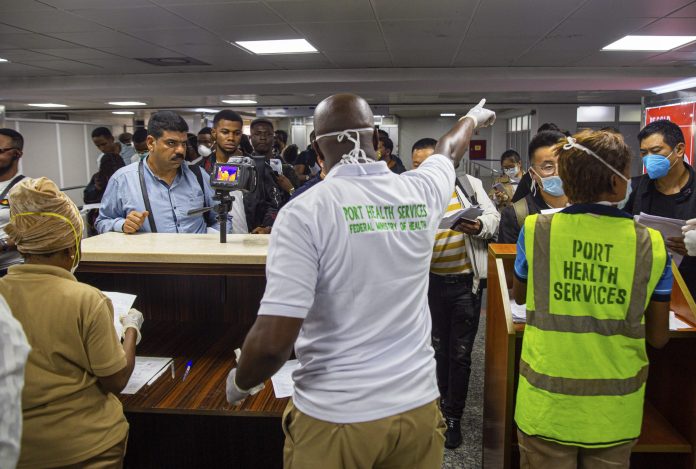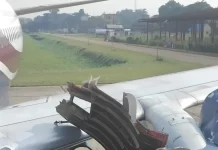The Federal Government has implemented stringent monitoring protocols for passengers arriving from China, following a sharp increase in cases of Human Metapneumovirus (HMPV). This respiratory virus has overwhelmed hospitals in northern China, particularly affecting children under 14 years old, and has raised concerns of a broader health crisis.
HMPV, first identified in Pakistan in 2001, has caused several outbreaks in Asia, but it is new to Africa, with no recorded cases on the continent. The virus spreads through respiratory droplets, close contact with infected individuals, or touching contaminated surfaces. Symptoms include cough, fever, nasal congestion, and shortness of breath, which can progress to bronchitis or pneumonia. The incubation period is 3–6 days, with illness duration varying depending on severity.
Chinese authorities have introduced measures such as mandatory mask-wearing, social distancing, and disinfection of public spaces to curb the virus’s spread. However, they have downplayed the outbreak, describing it as a seasonal occurrence typical during winter. Social media posts showing overcrowded hospitals have fueled public anxiety, despite government reassurances that the situation is less severe than in previous years.
Neighboring countries, including Cambodia, Taiwan, and Hong Kong, have reported a few cases of HMPV but have not experienced widespread outbreaks. The World Health Organization (WHO) is closely monitoring the situation, offering guidance for mitigating respiratory illnesses, such as staying home when ill, wearing masks, ensuring good ventilation, and practicing hand hygiene. WHO has not recommended travel restrictions but advises vigilance for those traveling to or from affected regions.
In Nigeria, Dr. John Oladejo, Director of Special Duties at the Nigeria Centre for Disease Control and Prevention (NCDC), confirmed that surveillance measures are being activated to detect and manage potential cases. “The FG will activate surveillance measures, like quarantine, for passengers coming in from China,” he stated. These precautions aim to prevent the virus from entering the country and spreading within communities.
Medical experts have praised Nigeria’s proactive response, emphasizing that such surveillance measures are critical for managing emerging health threats. The U.S. Centers for Disease Control and Prevention (CDC) also highlighted the importance of monitoring HMPV due to its ability to cause severe respiratory diseases in vulnerable populations, including children, older adults, and those with weakened immune systems.
This outbreak comes five years after the emergence of COVID-19, which originated in Wuhan, China, and caused a global pandemic. While HMPV is less severe than COVID-19, its rapid spread and potential to overwhelm healthcare systems make it a significant public health concern. Authorities worldwide continue to emphasize the importance of preventive measures and early detection in managing respiratory virus outbreaks effectively.
As Nigeria takes these steps, health officials urge citizens to remain vigilant and adhere to health guidelines, ensuring that the country is prepared to respond swiftly if cases arise.
















